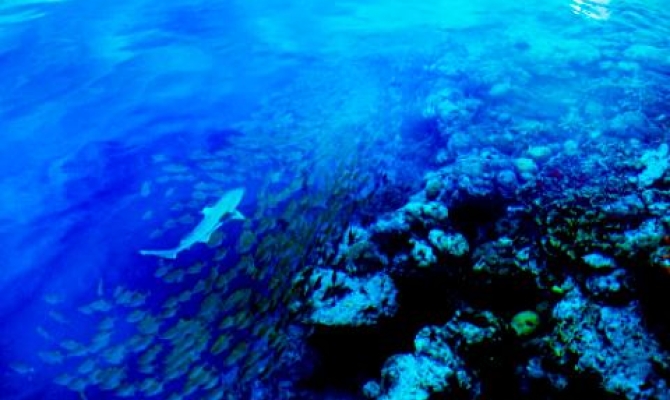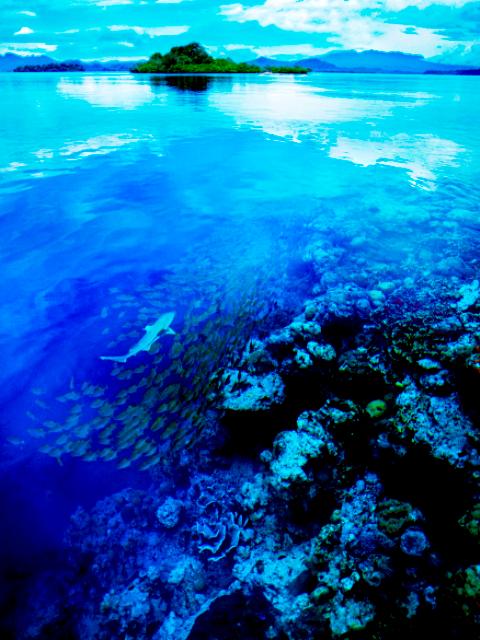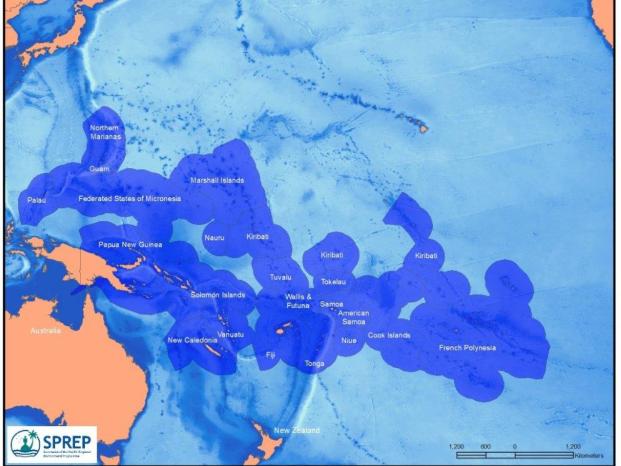
21 February 2013 - A project to strengthen Ocean Conservation and Management in European territories of the tropical South Pacific and other SPREP member countires will be coordinated by the Secretariat of the Pacific Regional Environment Programme (SPREP) with the French MPA Agency and partners.
 Reef shark and fish, Marovo Lagoon, Solomon Islands
Reef shark and fish, Marovo Lagoon, Solomon Islands
Photo: Mr. Stuart Chape
The Pacific Ocean covers 35% of the Earth's surface, that's 40 million square kilometers of which Pacific people are the stewards of. This project known as PACIOCEA or the South Pacific Ocean Ecosystem Analysis project, will help enhance local and regional capacity for improving conservation and sustainable ocean management through marine spatial planning.
The two year activity is in line with the priorities of the Pacific Oceanscape Framework which envisions a secure future for Pacific Island Countries and Territories based on sustainable development, management and conservation of our Ocean.
"The activities under this project will help meet key priorities under the Oceanscape, not only sustainable development, management and conservation but to also explore and build marine spatial planning tools," said Mr. Paul Anderson, SPREP's Environmental Monitoring Analyst.
"Through this process we can improve EEZ management that will bring about economic development and positive environmental outcomes."
One of the key activities of the PACIOCEA will be a transboundary collaboration and the implementation in the South Pacific of the Rio convention.
"We're excited to start on this endeavor, there is great potential to strengthen Ocean management in the Pacific. We're looking forward to getting this project off the ground and running."
This project is funded by the European Union, managed by the French MPA Agency and coordinated by the Secretariat of the Pacific Regional Environment Programme (SPREP). Other partners are the Intergovernmental Oceanographic Commission of UNESCO and the French Institute of Research for Development.
For more information please contact Mr. Paul Anderson – PaulA@sprep.org
